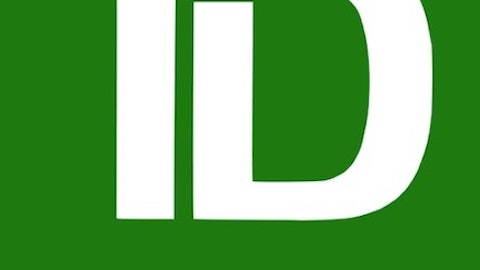Bloomberg has landed itself in hot water recently for a scandal involving the use of information gleaned by its reporters from its ubiquitous terminals. Bloomberg reporters had been “spying” on clients by accessing usage information from the clients’ terminals and using this information to track down stories. This practice angered Goldman Sachs Group, Inc. (NYSE:GS) and JPMorgan Chase & Co. (NYSE:JPM), who have complained to Bloomberg. Even the Federal Reserve is examining whether its top regulators were subject to the snooping. Bloomberg has since cut off the information to its reporters, and said that it will prevent any further access of such information by its reporters in the future. However, there is a question as to whether Bloomberg’s practice rises to the level of fraudulent, or if it was merely unethical. Furthermore, to what extent were JPMorgan Chase & Co. (NYSE:JPM), Goldman Sachs, or other Bloomberg clients hurt by the practice?
To be fair, the Bloomberg reporters only had access to limited information. By means of the option known as the Z function, reporters could see who had logged onto their terminals, and when they had logged in. Reporters could, in addition, see generally what functions the users were looking at, such as the news, corporate bond indices, or equities indices, as well as help desk chats. The reporters could not see the specifics of what the subscribers had viewed, including trades, securities or portfolios. However, in the hyper competitive world of Wall Street, clients are understandably concerned that even this general information would provide a glimpse into the possible strategies of the companies, which could be used against them. Reporters also had access to general analytic information showing how often articles had been accessed. This ostensibly helped the reporters identify which types of articles were popular amongst its clients, and helped focus the reporters on future story topics.
The use of the Z function was even implicated in the JPMorgan Chase & Co. (NYSE:JPM) London Whale scandal. Trader Bruno Iksil made large bets on credit default swaps that ultimately led to losses estimated to be in excess of $6 billion for the bank. Bloomberg reporters used the information to determine when certain traders had last accessed the terminals, and questioned whether they were still employed by the bank. Although JPMorgan Chase & Co. (NYSE:JPM) complained about this use of information, no formal complaint was ever lodged.
From a market perspective, it is difficult to tell if the individual investor is either helped or hurt by the scandal. Bloomberg would be the company most likely impacted by matter. However, Bloomberg is a private held company, albeit a large one, with estimated revenue of $7.6 billion in 2011. It was founded in part by Michael R. Bloomberg in 1982, more widely known now as the mayor of New York City. It is estimated that Bloomberg has 315,000 terminals around the globe, with a yearly subscription fee of around $20,000. Since the company is not publicly traded, it is difficult to tell what impact, if any, this scandal will have on its revenue, and there is no public share price to show the reaction of the market.
JPMorgan Chase & Co. (NYSE:JPM)’s stock price appears to not have been impacted by the scandal, as it is up 9.25% in the last month, trading around $53.50 after touching a near term high of $55.50 recently. JP Morgan currently sports a P/E ratio of 9.55, and a dividend yield of 2.84%.
Goldman Sachs Group, Inc. (NYSE:GS) is similarly up 9.88% in the last month, and currently has a P/E ratio of 11.24 with a dividend yield of 1.22%. It is currently in the midst of buying Ebix in a potentially lucrative deal.
By comparison, Wells Fargo & Co (NYSE:WFC) is up 6.92% over the past month. Wells Fargo has a slightly higher dividend yield of 2.95%, and a P/E ratio of 11.52. The larger financial stocks appear to be mirroring one another, showing no appreciable effect of the scandal. The only conceivable way that JPMorgan Chase & Co. (NYSE:JPM) and Goldman could have been hurt is if the Bloomberg employees were able to ascertain certain trades or strategies used by the companies and somehow exploit the same, which would only be shown by a downturn in earnings for the companies. This does seem unlikely. Further, the snooping had been going on for years, whereby any large impact on the companies would appear to be negligible.
As a practical matter, Bloomberg’s clients may gravitate to other platforms, including the main competitor in Reuters 3000 Xtra platform, which could conceivably result in a loss of market share for the company. Thompson Reuters could see some marginal revenue increase as a result. Thompson Reuter’s share price is down 1.53% in the last month, but is up 17.84% year to date. Thompson Reuters reported revenue of $3.1 billion for the first quarter, with adjusted earnings of $0.38 per share, beating estimates of $0.32 per share. Investors could make a play betting on Thompson Reuters picking up business from disgruntled Bloomberg clients, resulting in better revenue and earnings and an uptick in share price.
Although the practice by Bloomberg reporters was clearly unethical, which Bloomberg has admitted, it likely does not rise to the level of fraudulent. Since the reporters could not see specific information on portfolios and trades made, there was no leak of proprietary information. Thus, despite the competition from Thompson Reuters, Bloomberg terminals are firmly entrenched in the financial world, and any loss of market share could be a mere blip on the screen, as it were.
The article How Is This Scandal Affecting Your Investment in Financials? originally appeared on Fool.com and is written by Mike Thiessen.
Mike Thiessen has no position in any stocks mentioned. The Motley Fool recommends Goldman Sachs and Wells Fargo & Co (NYSE:WFC). The Motley Fool owns shares of JPMorgan Chase & Co. (NYSE:JPM) and Wells Fargo. Mike is a member of The Motley Fool Blog Network — entries represent the personal opinion of the blogger and are not formally edited.
Copyright © 1995 – 2013 The Motley Fool, LLC. All rights reserved. The Motley Fool has a disclosure policy.





